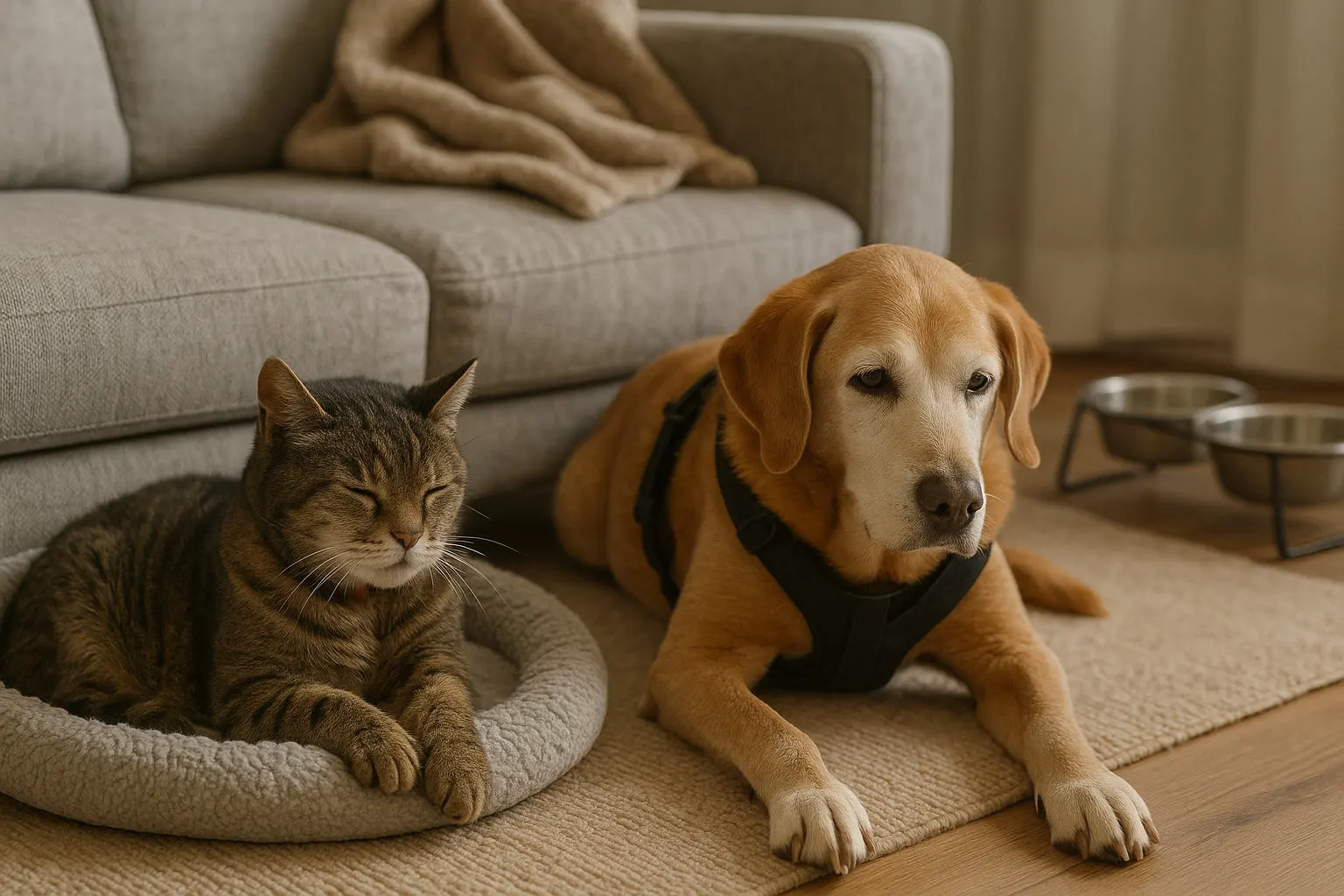Senior Pets: How to Care for Aging Dogs and Cats
- Longer Lives, Happier Years
Just like people, pets go through life stages — and our beloved companions deserve special care in their golden years. Senior pets may move slower or sleep more, but with the right support, they can still thrive and enjoy life to the fullest. 💛
When Is a Pet Considered "Senior"?
Generally, cats and small dogs are considered seniors around age 7, while larger dog breeds reach senior status closer to age 6.
1. Adjust Their Diet 🥩🥕
- Choose senior-specific formulas with joint support and easy-to-digest ingredients
- Watch for weight gain — metabolism slows down with age
- Add omega-3s or glucosamine supplements as needed (always ask your vet!)
2. Support Mobility 🐾
3. Keep Their Mind Active 🧠
- Play food puzzles and scent games
- Introduce new but gentle toys
- Maintain a consistent daily routine
4. Prioritize Vet Visits 🩺
- Schedule biannual check-ups for early detection of issues
- Monitor for subtle signs of pain or confusion
5. Show Extra Comfort ❤️
- Brush them gently and regularly to reduce matting
- Keep nails trimmed to help with balance
- Give lots of snuggles and patience 🐾
With a little extra love and attention, your senior pet can enjoy many joyful, peaceful years. They may slow down, but their love never does. 💕
